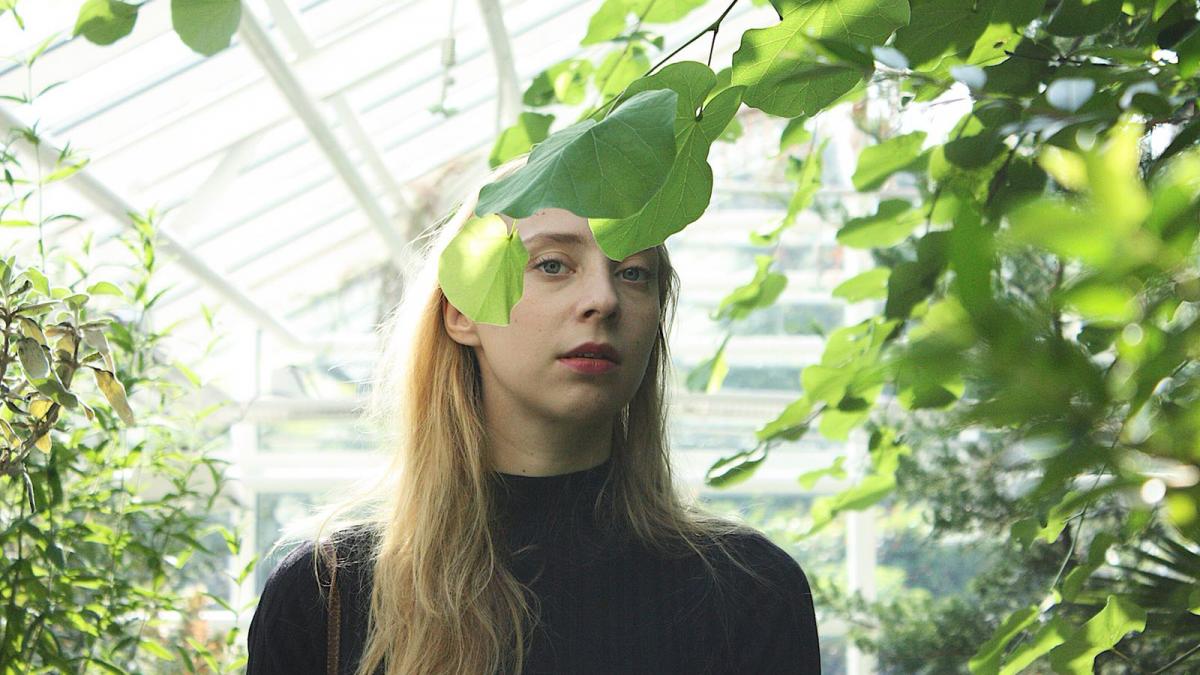Master’s student in Dance Performance: Ask questions, listen to others and to yourself
Read an interview with Anni Kaila.

Tell us who you are and how you ended up studying at Uniarts Helsinki.
I’m Anni Kaila, a Helsinki-based dance artist. I did my bachelor’s at the contemporary dance programme of Amsterdam School of the Arts’ Academy of Theatre and Dance. From there I graduated in 2015. After working as a freelancer in dance in central Europe I felt like taking on additional studies. From the beginning it was clear that I was interested in deepening my thinking and my capabilities particularly as a dancer and a performer. The master’s programme in dance performance at Uniarts Helsinki’s Theatre Academy is quite unique in Europe. After having spent some years abroad, returning to Finland felt like a natural next step.
What was your entrance exam like?
The first day began with a short improvisation exercise, during which we did some assignments in groups and in pairs. After that we performed our solo pieces that we had prepared in advance for the entrance exams. The next phase consisted of two technique lessons and an assignment where we examined movement, which we had prepared during the second day of exams. The process ended in interviews. The entrance exams were shorter and less intense than what I had prepared for, and I was kind of relieved about that. On the other hand, it would have been nice to get to know the fellow applicants better.
How did you prepare for entrance exams?
I had just recently performed in Köln with the same solo that I performed in the entrance exams, so the preparations for both were well-aligned. Other than that, I didn’t prepare for the exams that much and thus didn’t have too much anxiety about them, which suited me perfectly.
What were the advance assignments like?
The advance assignments included returning a portfolio and a written assignment based on an article. Making the portfolio was an interesting way to bring to mind all of the projects I had done over the years. The written part was about reflecting on being a dance artist, and out of professional curiosity, I took it as an opportunity to articulate the things that matter to me in my own work.
What have your studies been like so far?
At the moment we are in the middle of our final thesis process, which has been quite different from the previous phases of our studies. We are working on a large production with a team, whereas previously our performances have been more of demo-like trials. Studying has been intense, varied and challenging, and time has gone by quickly. The studies and the structure they provided felt like a welcome change to my life as a freelancer. I have contemplated my professional identity as a dancer and dance-maker, especially in relation to the school’s choreographer-dancer-division, as well as to all the conversations that I’ve had with fellow students, lecturers and visiting teachers.
What are your most memorable courses or projects during your studies?
The demo performances that were done in collaboration with choreography students and all the workshops that preceded them during spring of my first year were very rewarding for me. The approach to working was inquisitive, egalitarian and enthusiastic, and I learned a lot from my course mates. Two singing courses have also left an imprint, because they challenged me as a performer and a learner in a completely different way from what I had been used to. In addition to my master’s studies I have also taken some writing courses on the side. They’ve felt important for the balance they’ve provided to all the rest.
What does a typical study day look like to you?
Right now we are working on the production from about 10am to 5pm. Most of our studies, though, are constructed so that we have a physical lesson of some kind in the morning with an alternating teacher, and in the afternoon we have a longer workshop that lasts about a week. When working with choreographers we do scheduling independently. In December and May-June we can choose optional studies, from Uniarts Helsinki’s joint studies, for example.
What is best in your studies?
For me the most important thing has been the support from course mates and the overall discursive atmosphere. I expected the master’s studies to be more of a solitary grind, and they have been that, too, but I have also learned the significance of community when making art. My studies have also opened up new perspectives to performance and to dramaturgical thinking as a performer. They’ve also provided more questions than answers, which is a good thing.
What has been the most challenging?
The structure of dance performance studies is quite rigid, and combining individual studies and extra-curricular work has been a bit of a jigsaw. Luckily, I have always been able to negotiate about compensatory work and such.
What advice would you give a future applicant?
Use the advance assignments and entrance exams as an opportunity to think about your own relationship with art and being a performer. Ask questions and listen to others and yourself. Breathe.